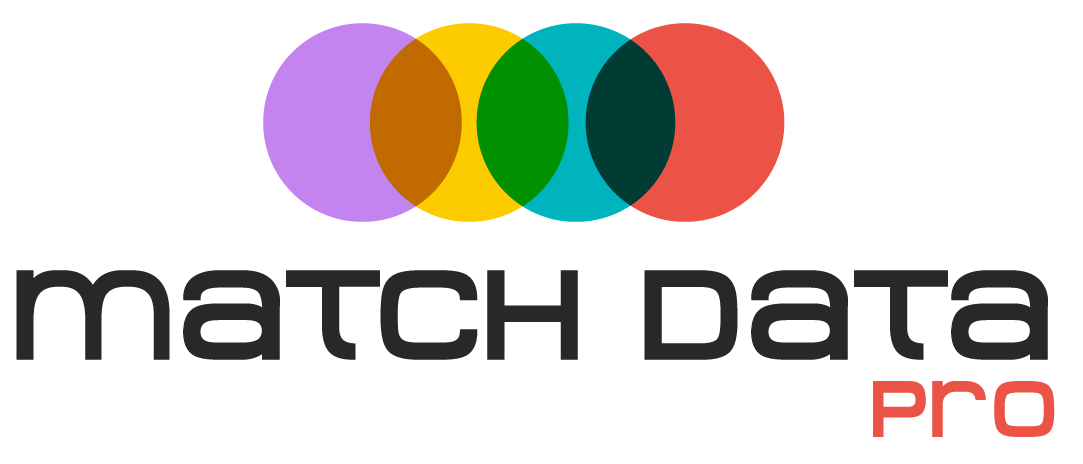The Statewide Longitudinal Data System (SLDS) is a critical tool used by educational agencies to track and analyze student data over time. By linking data from early education, K-12, postsecondary education, and workforce systems, SLDS provides insights that help improve student outcomes, guide policy decisions, and enhance educational programs. However, managing and ensuring the accuracy of this massive and complex data system requires robust data matching and cleansing tools.
This is where Match Data Pro comes in as either a supplemental tool or a principal solution for meeting SLDS needs.
Challenges Faced in SLDS Implementation
One of the core challenges in an SLDS is managing data from disparate sources. As states aggregate data across different education systems and institutions, they often face issues like:
- Inconsistent formats across systems
- Duplicate records for students and staff
- Errors in data entry leading to incomplete or incorrect datasets
- Complex data integration and matching processes, especially when identifying the same individuals across various data sources
All of these challenges impact the accuracy, usability, and integrity of the data. Without a proper system in place for data cleansing and matching, even the best SLDS can produce unreliable reports and analysis.
How Match Data Pro Addresses SLDS Data Challenges
Match Data Pro (MDP) is designed to handle large volumes of data while providing key functionalities that improve the quality and accuracy of the datasets. Here’s how MDP can be integrated with SLDS to tackle some of the common issues:
1. Fuzzy Matching and Data Profiling
One of the primary strengths of Match Data Pro is its fuzzy matching capabilities, which help match records that are not identical but refer to the same entity (e.g., slight name variations). This feature is vital for SLDS systems that need to identify the same student across various datasets where records may not always match perfectly.
MDP allows for customizable matching definitions that include both exact and fuzzy matching techniques, ensuring no potential matches are missed while keeping false positives low. Through data profiling, MDP also helps identify common issues in the data, such as formatting inconsistencies or duplicates.
2. Data Cleansing
To ensure that SLDS reports are accurate, data needs to be free from inconsistencies and errors. MDP’s data cleansing features allow agencies to normalize and standardize data, removing duplicate records and resolving formatting issues. This is particularly useful for managing records from various educational institutions that may have different standards for data entry.
3. Flexible Matching Definitions
MDP offers flexible and customizable matching definitions, enabling SLDS administrators to define criteria that suit their specific needs. Whether it’s exact matches based on National IDs or fuzzy name matching for ambiguous records, MDP allows for the creation of matching rules that optimize the accuracy of linked records across datasets.
4. High-Performance Data Matching
SLDS systems often involve large datasets that span multiple years and include millions of records. MDP is built to handle such large-scale data matching efficiently. With the ability to process over 20,000 records per second, MDP ensures that data matching does not become a bottleneck in SLDS implementation.
5. Group Records and Deduplication
MDP includes features like grouping matched records and deduplication. For SLDS systems, where data might be duplicated across several educational stages, the deduplication function helps ensure that each student is counted only once, improving data accuracy and reporting.
6. Seamless Integration with SLDS
Whether used as a supplemental tool or a primary solution, Match Data Pro integrates seamlessly into an SLDS framework. Its user-friendly interface and customizable features allow SLDS administrators to improve their data matching processes without needing to overhaul existing systems.
Conclusion: Why Match Data Pro Is an Ideal Solution for SLDS
Implementing and maintaining a Statewide Longitudinal Data System requires more than just data collection and storage; it demands tools that ensure data accuracy, reliability, and consistency. Match Data Pro offers essential features like fuzzy matching, data cleansing, profiling, and high-performance processing that enhance SLDS functionality.
By using Match Data Pro, agencies can significantly reduce errors, streamline the matching process, and generate more accurate reports that inform educational policy and improve student outcomes. Whether you are looking for a supplemental tool to strengthen your existing SLDS or a primary solution to manage data integration and matching, Match Data Pro provides the features you need for long-term success.
